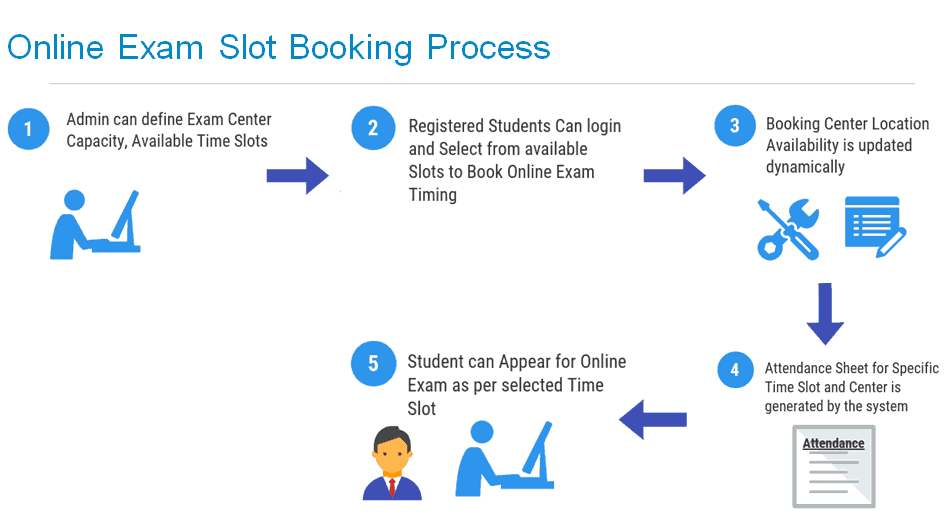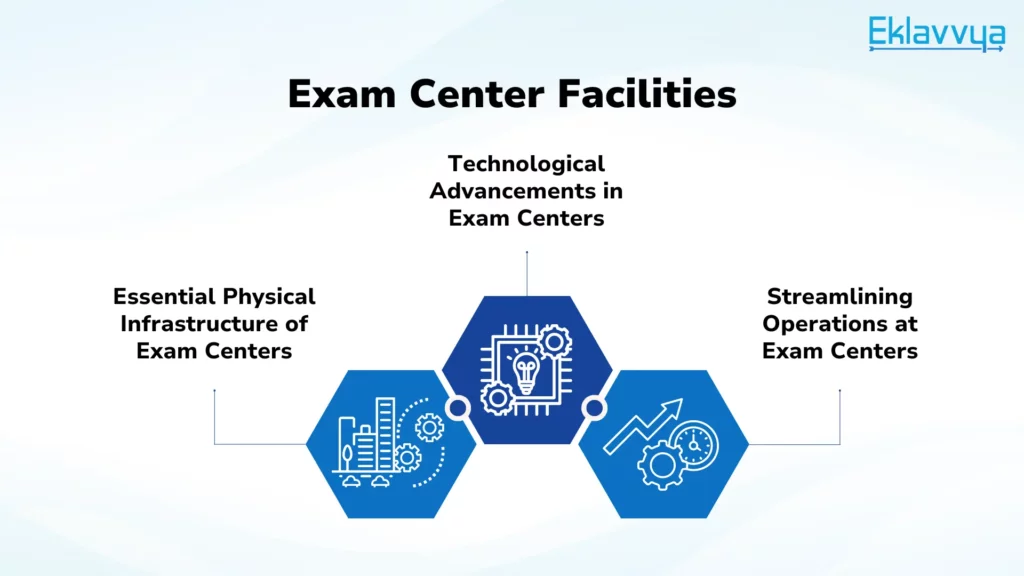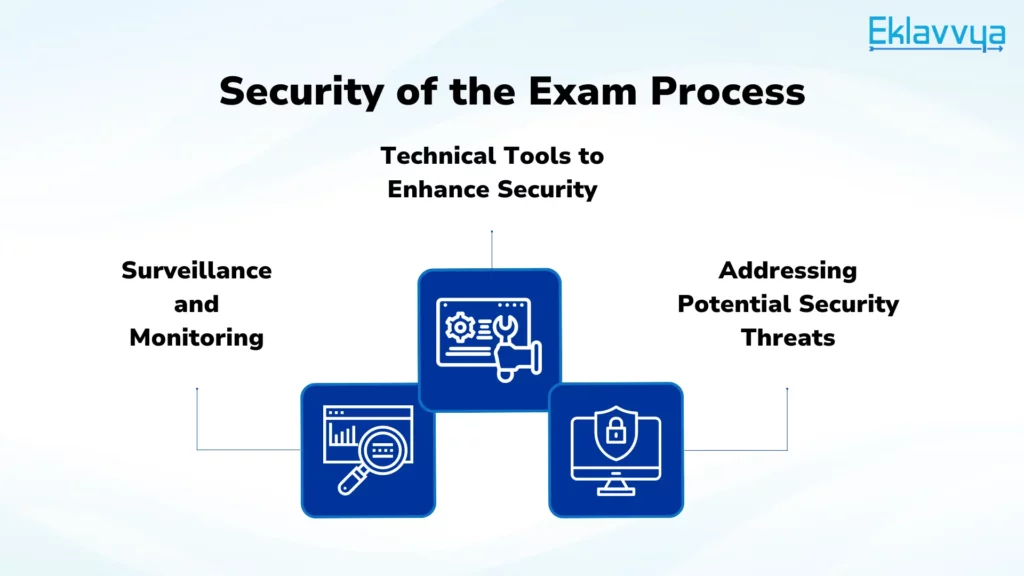Article Contents
Introduction
Conducting center-based examinations involves a series of critical steps that ensure the smooth and secure administration of tests. From the initial application process to the final steps of sitting the exam, each phase needs meticulous planning and execution.
In this guide, we explore the essential components of this process—specifically, the application form filling and exam center slot booking—detailing how these can be optimized to enhance both efficiency and security.
Application Form Filling: Starting your Exam Process Right
The journey towards a smooth examination process begins with the application form. This document collects vital information about the candidates, such as personal details, address, academic history, and, importantly, their preferred examination center.
Here’s how to ensure that this initial step sets the tone for efficiency and security:
Designing the Form
A well-designed online application form is the cornerstone of efficient exam management. Ensure the form is user-friendly, accessible, and inclusive, supporting all candidates in providing their information without hassle.
Details to Include
Candidates should be able to enter their details, academic background, and any special accommodations they might need. Moreover, allowing them to select their preferred exam center at this stage integrates personalization into the process, enhancing the candidate’s experience.
When designing an online registration form, it is crucial to collect student personal information, parent information, and academic details according to the required standards. This will be particularly useful when conducting entrance or qualification exams at a center and defining tie conditions based on the exam results.
In such tie situations, a candidate’s academic performance often plays a role in determining the merit list and other qualification or reservation criteria as per government norms. Hence, it is vital to include all relevant details in the application form to streamline post-examination processes related to admitting candidates into their respective courses.
Security Measures
Implementing robust data protection measures such as SSL encryption and secure data storage practices ensures that candidates’ information remains confidential and safe from unauthorized access.

Exam Center Slot Booking: Tailoring the Candidate Experience
Real-Time Availability Updates
An effective online slot booking system displays real-time information about the availability of exam centers. This feature prevents overbooking and helps in distributing candidate loads evenly across different centers.

Flexible Scheduling Options
Candidates appreciate the ability to choose a date and time that best fits their schedule. Offering flexibility in this regard can significantly improve the registration experience and reduce no-shows on exam day.
Integration with Hall Ticket Issuance
After booking their slot, candidates should automatically receive their hall tickets. These tickets must include essential details like the candidate’s photograph, the exam date and time, and the address of the exam center. Automating this step not only saves time but also minimizes errors in the ticket generation process.
Exam Center Facilities: Setting the Stage for Success

The physical and technological infrastructure of exam centers plays a crucial role in the smooth execution of tests.
1. Essential Physical Infrastructure of Exam Centers
Good lighting, comfortable seating, adequate space, and a quiet environment are fundamental to an exam center. Additionally, provisions for candidates with special needs must be considered to ensure inclusivity and fairness.
2. Technological Advancements in Exam Centers
Modern exam centers are equipped with high-speed internet, power backup solutions, and surveillance systems to support electronic testing and maintain security.
3. Streamlining Operations at Exam Centers
Efficient management of entry and exit processes, proper signage, and trained staff can significantly streamline operations at exam centers, minimizing confusion and stress for candidates.

Security of the Exam Process: Safeguarding Integrity

Maintaining the integrity of the exam process is vital. This involves several layers of security measures to prevent cheating and ensure fairness.
1. Surveillance and Monitoring
CCTV cameras and invigilators play a key role in monitoring the exam environment. Advanced software solutions can also detect irregularities in candidate behavior, further securing the process.
2. Technological Tools to Enhance Security
Biometric systems, metal detectors, and electronic jammers are commonly used to prevent unauthorized access and electronic cheating.
3. Addressing Potential Security Threats
Regular updates to security protocols and continuous staff training are essential to adapting to new cheating methods and potential security threats.

Ensuring accurate candidate information, secure distribution methods, and quick resolution of discrepancies are key best practices for hall ticket management.
Implementing a user-friendly interface, providing clear information on available slots, and ensuring robust system performance during high-traffic periods are essential.
Regularly updating surveillance systems, using biometric verification, and training staff to handle security protocols effectively are crucial measures.






![How Government-Led Exams at 250+ Locations Are Setting New Standards of Integrity [Case Study]](https://www.eklavvya.com/blog/wp-content/uploads/2024/04/Enhancing-Exam-Integrity-Government-Certification-in-250-Locations-150x150.webp)















